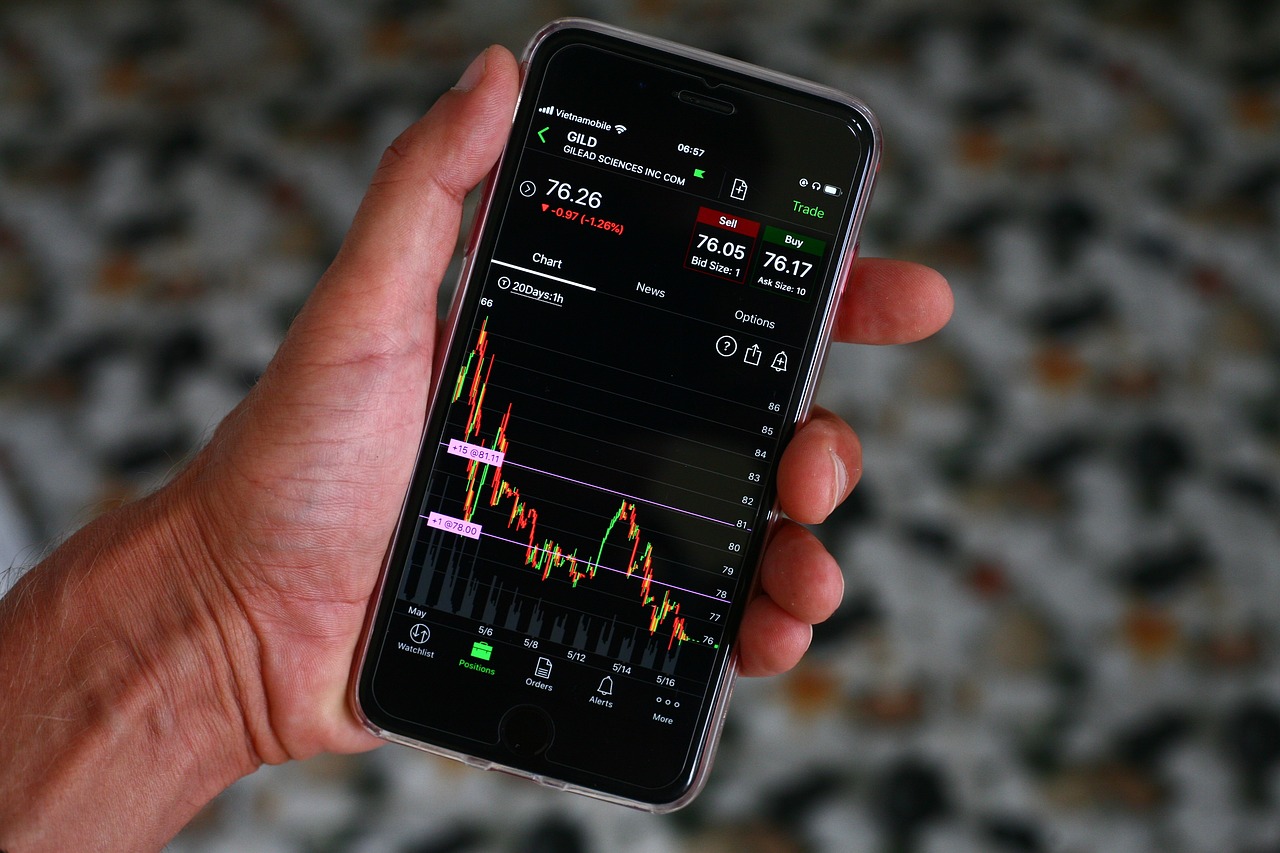The Nasdaq Composite Index, known for its tech-heavy composition, recently experienced a 1% decline that sent shockwaves through the stock market. This drop was primarily driven by Oracle’s disappointing performance, coupled with concerns about Apple’s new product release. In this article, we’ll delve into the details of this market downturn and its implications for investors and the broader economy.
Oracle’s Troubles: A Closer Look
Oracle’s Fiscal First-Quarter Results
Oracle, a prominent software company, found itself at the center of attention as it posted its worst day since 2002. The decline of 13.5% in Oracle’s stock price followed the release of its fiscal first-quarter results. Sales in the last quarter fell short of estimates, and the company’s revenue forecast was equally disappointing. This underperformance sent ripples throughout the tech sector.
Impact on Competitors
Oracle’s troubles weren’t isolated. Major cloud competitors, including Amazon, Google-parent Alphabet, and Microsoft, also saw their stocks slide. This downturn in cloud giants raises concerns about the broader technology sector and its ability to sustain growth in the current market climate.
Apple’s Slide: New iPhone Model Reaction
Another factor contributing to Nasdaq’s dip was Apple’s stock AAPL, which was down by 1.7%. This decline followed the announcement of a new iPhone model. Apple’s stock often reacts strongly to product announcements, and this instance was no exception. Investors were quick to react, contributing to the broader tech sector’s decline.
Oil Prices Surge, Energy Stocks Rise
Amidst the tech turmoil, U.S. crude oil prices reached their highest levels since November of the previous year. OPEC’s forecast of robust demand growth for this year and the next drove the surge. West Texas Intermediate crude oil futures settled at $88.84 a barrel, significantly higher than the $66 per barrel price seen in March. This uptick had a positive effect on energy stocks, with Chevron and Exxon Mobil experiencing gains of about 1.9% and 2.9%, respectively.
Inflation Data on the Horizon
Market watchers are eagerly awaiting key inflation data scheduled for later in the week. The consumer price index (CPI) is expected on Wednesday, while the producer price index (PPI) is slated for Thursday. These inflation metrics hold significant weight in shaping market sentiment. Additionally, the European Central Bank’s interest rate decision on Thursday adds to the market’s anticipation.
The Magnificent 7: Tech Stocks Retreat
It wasn’t just Oracle and Apple feeling the heat. All seven of the “Magnificent 7” tech stocks experienced declines. Tesla led the pack with a 2.2% drop, followed by Meta Platforms, Microsoft, Apple, Amazon, and Alphabet, all posting declines ranging from 1.2% to 1.8%. Nvidia was the only outlier, with a more modest 0.7% retreat. This collective tech stock decline underscores the sector’s vulnerability to market fluctuations.
Expert Analysis: The Fed’s Rate Hike Outlook
DoubleLine Capital CEO Jeffrey Gundlach weighed in on the Federal Reserve’s monetary policy, suggesting that the central bank may halt its rate hikes. Gundlach emphasized economic weakness as a reason for this shift, pointing to the core Personal Consumption Expenditures Price Index as a key metric. His analysis raises questions about the Fed’s future actions and their potential impact on the market.
Disney’s Deal with Charter: Wall Street’s Perspective
Disney’s recent deal with Charter Communications garnered attention on Wall Street. Analysts see several positives stemming from this agreement, including the inclusion of Disney’s streaming apps in Charter’s packages. Morgan Stanley’s Benjamin Swinburne views this deal as a value adder, potentially reducing cord-cutting rates and benefiting both Disney and Charter. Needham’s Laura Martin predicts that this partnership could significantly boost Disney’s revenues in the coming years.
Market Predictions: Enphase Energy and AstraZeneca
Truist analyst Jordan Levy downgraded Enphase Energy, citing concerns about the recovery in the U.S. residential solar market. This decision reflects the cautious outlook for certain tech sectors in the near future. Conversely, Bank of America reiterated its buy rating on AstraZeneca, emphasizing the company’s attractive valuation and promising pipeline. These diverse market predictions underscore the complexity of the current economic landscape.
AI Stocks on the Rise: Winners and Losers
Artificial intelligence (AI) continues to gain traction in various industries. Barclays identifies potential AI winners, with a focus on tech giants like Alphabet and Meta Platforms. Their strong technical AI capabilities and ample resources for investment position them as frontrunners. Amazon, with its dominance in cloud services and e-commerce, also stands to benefit from the AI revolution. Barclays’ analysis sheds light on the evolving AI landscape and its potential impact on the stock market.
Fed’s Rate Cut Expectations: Mohamed El-Erian’s Insights
Mohamed El-Erian, Chief Economic Advisor at Allianz, challenges market expectations of an early rate cut by the Federal Reserve. Despite recent inflation concerns and the September rate pause, El-Erian believes that both core and headline inflation may persist above the traditional 2% target. This view contradicts the prevailing sentiment and emphasizes the uncertainty surrounding future monetary policy.
Outdoor Powersports Investment: Bombardier Recreational Products
Citi’s analyst James Hardiman identifies Bombardier Recreational Products as a promising investment in the outdoor power sports sector. Hardiman upgraded the stock to buy and raised the price target, citing the company’s potential for growth. This endorsement highlights opportunities beyond the tech sector and showcases the diversity of investment options available.
BP’s CEO Resignation Impact
Lastly, the U.S.-listed shares of BP experienced a 1.8% increase following reports of the energy giant’s CEO, Bernard Looney, resigning. Looney’s leadership during the transition to clean energy was noteworthy. His departure raises questions about BP’s future direction and underscores the significance of leadership changes in the energy sector.
Conclusion
The recent Nasdaq decline, driven by Oracle’s disappointing performance and Apple’s product announcement, serves as a reminder of the volatility in the tech sector and its far-reaching implications for the broader market. As investors await crucial inflation data and monitor the Fed’s actions, the market remains in a state of flux, demanding careful navigation and a diversified investment strategy.
FAQs about the Nasdaq’s 1% Drop and Its Impact on the Market
1. Why did the Nasdaq Composite Index drop by 1% recently?
- The Nasdaq Composite Index experienced a 1% drop primarily due to Oracle’s disappointing fiscal first-quarter results and concerns regarding Apple’s product release. Oracle’s stock plummeted by 13.5% after missing sales estimates, while Apple’s announcement of a new iPhone model led to a decline in its stock price, both contributing to the Nasdaq’s downturn.
2. What role did Oracle play in this market decline?
- Oracle’s poor performance was a significant factor in the Nasdaq’s drop. The software company missed revenue estimates and offered a disappointing revenue forecast, leading to a 13.5% decline in its stock price. As Oracle is a key player in the tech sector, its underperformance raised concerns about the industry’s overall health.
3. How did other tech giants like Amazon, Google-parent Alphabet, and Microsoft react to Oracle’s troubles?
- Other cloud competitors, including Amazon, Google-parent Alphabet, and Microsoft, also saw their stock prices slide following Oracle’s downturn. This collective decline among tech giants highlighted broader concerns about the tech sector’s resilience in the face of market fluctuations.
4. What impact did rising oil prices have on the market?
- Rising U.S. crude oil prices, reaching their highest levels since November of the previous year, provided a boost to energy stocks. Companies like Chevron and Exxon Mobil saw gains of about 1.9% and 2.9%, respectively. This surge in oil prices brought a positive influence to the market amidst the tech turmoil.
5. Why is the market eagerly anticipating inflation data?
- The market is closely monitoring inflation data, including the consumer price index (CPI) and producer price index (PPI) because these metrics have a significant impact on market sentiment and the Federal Reserve’s monetary policy. Investors are interested in understanding the extent of inflation and how it might influence future interest rate decisions.
Tags:
- Nasdaq Composite
- Oracle
- Tech stocks
- Apple
- Stock market
- S&P 500
- Market analysis
- Inflation data
- Energy stocks
- Federal Reserve










